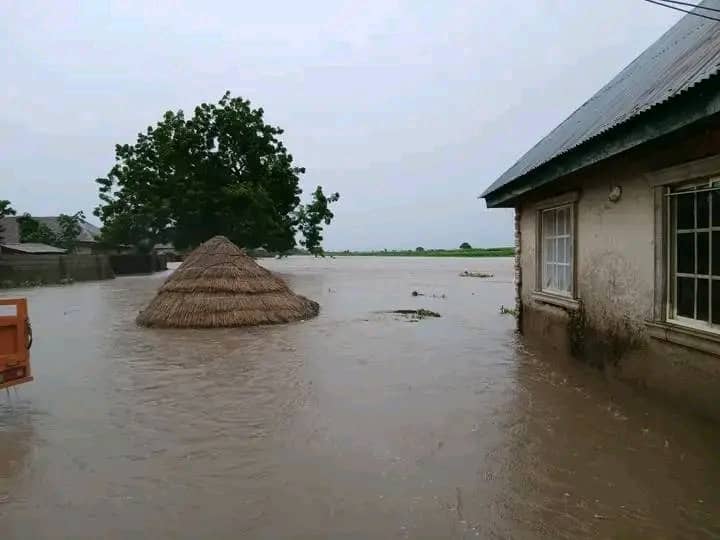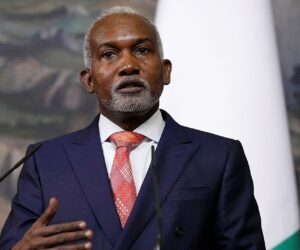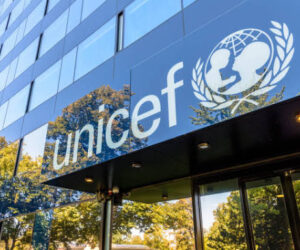The International Committee of the Red Cross (ICRC), in collaboration with the African Development Bank (AfDB) and Borno State Government, on Wednesday, launched the Maiduguri Water Rehabilitation and Development Master Plan.
According to the stakeholders involved in the planning and implementation, the project will start with phase one (2025–2026), and the investment would gulp the sum of $10 million in the first phase, adding that the initiative is targeted to benefit more than 2.5 million residents and displaced people by 2030.
Daily Trust reports that the unveiling of the project is coming on the heels of looming floods in the State and some other States in the country as well as expected water scarcity during the dry season.
SPONSOR AD
Speaking in Abuja during a roundtable themed: “Delivering Inclusive and Resilient Water Services in Maiduguri”, ICRC Head of Delegation in Nigeria, Doris El Doueihy, revealed that the plan is an investment-ready roadmap to scale water infrastructure in Maiduguri, where demand far exceeds supply.
El Doueihy explained that Maiduguri’s water system was already overstretched, with demand exceeding supply, and recent flooding highlights the urgent need for infrastructure that can withstand future shocks, while disclosing that the State government had already in 2023 endorsed the master plan.
“We are gathered here today to turn shared intent into coordinated action. This high-level roundtable is about transforming ambition into a practical roadmap. Safe, inclusive and climate-resilient water for Maiduguri, a city whose growth and resilience are vital for the future of Borno State and beyond.
“Maiduguri is expanding rapidly, yet its water system is already under immense strain. Demand exceeds capacity, and the floods of 2024 reminded us that infrastructure must not only serve today’s needs, but also withstand tomorrow’s shocks.
“In response to this humanitarian situation, the ICRC, drawing on its expertise in both conflict and urban settings, developed the Maiduguri Urban Water Supply Master Plan in support of local authorities,” the ICRC boss said.
Giving a breakdown on how the project will go round the State, she stated that the initiative is targeted to benefit more than 2.5 million residents and displaced people by 2030, including 436,000 people in phase 1 and up to 800,000 in Phase 2 (2027–2031).
She said there is also a separate Bolori I project (2026–2030) that will serve an additional 270,000–300,000 people.
On his part, AfDB’s Director-General, Abdul Kamara, said the Bank was working with Borno State, ICRC, and other partners to address water challenges, noting that good governance is key to achieving global goals on peace, justice, and clean water.
Kamara, who highlighted the Bank’s track record, explained that it had invested more than $800 million in water and sanitation projects across Nigeria over the past decade, reaching over 8 million people.
“Our investments in Nigeria, particularly in water and sanitation, are a testament to the commitments that I was just talking about. Over the past 10 years, with a portfolio only in water and sanitation, you know, our investment of over $800 million in this country, we have supported at least 8 million people in Nigeria with access to water and sanitation.
“Through our active portfolio and in partnership with the Federal Ministry of Water Resources and Sanitation and others, we are continuing to support reforms and the development of investment plans for the much-needed additional investments.
“Our recognition of the interconnectedness of water, resilience and peace led us to approve the Inclusive Basic Services Delivery Programme and Livelihood Empowerment Integrated Programme for Northern Nigeria in 2016, which prioritized, again, water and sanitation as essential pathways to stability.
“So, the programme is not yet complete, but to date, about 26,000 individuals have been trained in health, in education, and in wash sectors,” he said.
Kamara further disclosed that in Borno State alone, AfDB programmes had benefitted 1.6 million people, with nearly a quarter of those investments concentrated in Maiduguri.
Commenting, Borno State Governor, Babagana Zulum, reiterated the state’s dedication to building a resilient water system, describing the partnership as a crucial step toward safeguarding public health.
Zulum, who was represented by the Secretary to the State Government, Tijjani Bukar, reflected on the September 2024 floods, which displaced thousands and destroyed water infrastructure.
He said the state is determined to build systems that can withstand climate shocks, while outlining three pillars of the governor’s vision: universal access to potable water, resilient infrastructure, and innovative community-led solutions.
The government official added that measures were underway to secure facilities against vandalism and theft while increasing budget allocations and ensuring transparency in spending.








